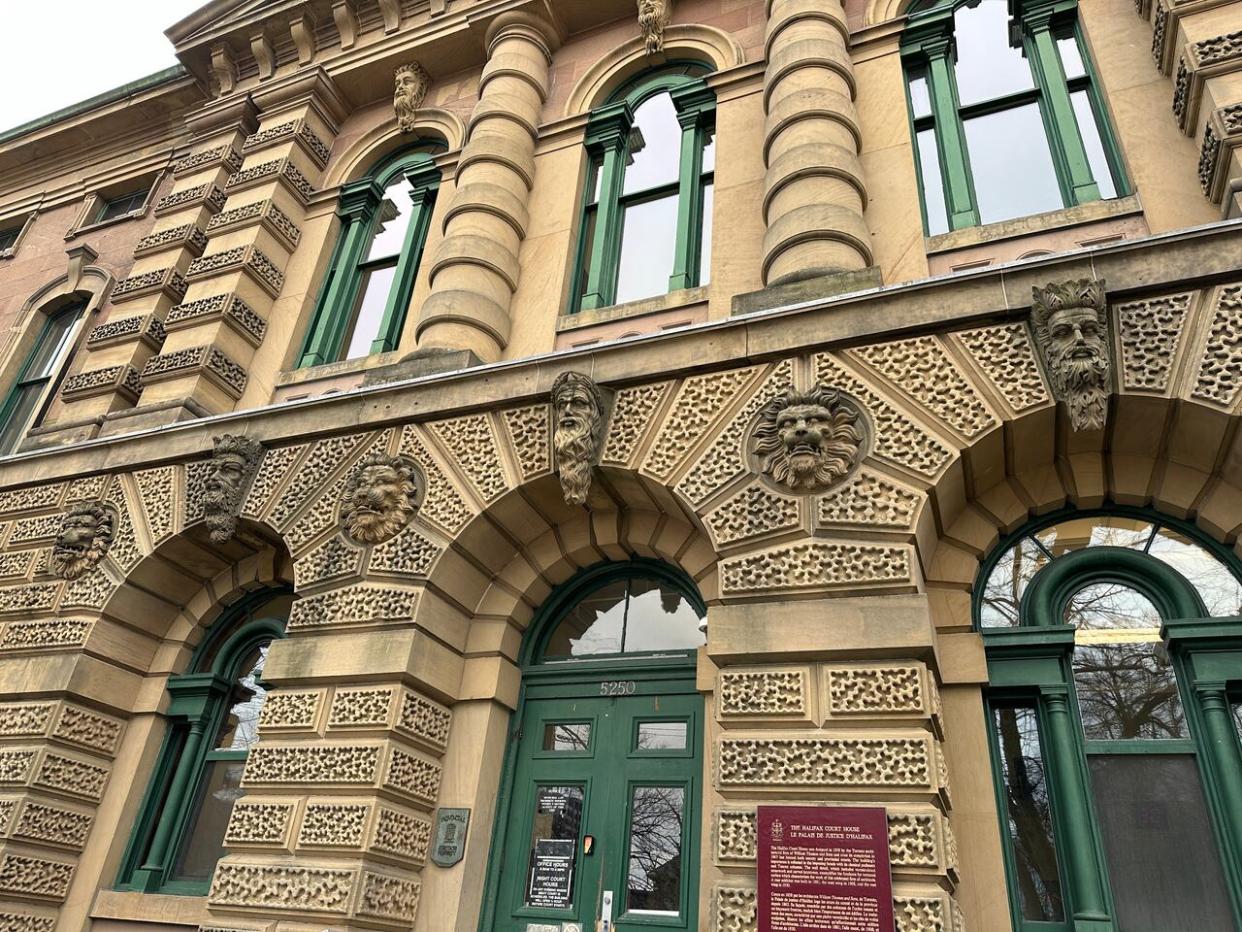Teen charged with high school stabbings should face trial, argues Crown prosecutor

Stopping the prosecution of a teenager charged in connection with a high school stabbing incident would be a drastic measure, the Crown lawyer in the case told a Halifax courtroom on Friday.
The teen's lawyers are alleging his Charter rights were breached after he was arrested, both by Halifax Regional Police and then a court sheriff, following an incident at Charles P. Allen High School in Bedford, N.S., in March last year.
Two staff members of the school were injured as was the teen himself, who is scheduled to go to trial in March to answer to 11 charges, including two of attempted murder.
In closing submissions on the challenge, the Crown said the public would lose the opportunity to see the case argued on its merits if provincial court Judge Elizabeth Buckle decided to stay the proceedings, which would end the prosecution.
The defence argued audio recordings made by police after the accused's arrest were "highly intrusive" and an "unreasonable search and seizure."
It did not matter that the teen's statements were voluntary, said defence lawyer Paul Sheppard, adding young people are entitled to enhanced protection under the Youth Criminal Justice Act. As a remedy, he said, a stay of proceedings is warranted.
The fact that personal medical information was recorded when the teen, who is now 16, was talking to health-care professionals exacerbates the issue, he said.
Crown not planning to rely on recordings at trial
In response, the Crown said police officers are entitled to be present both in the ambulance and the hospital, especially when a person is under arrest.
Crown attorney Jamie Van Wart said the charges are very serious and that audio recordings provide a more accurate record than police note taking.
He said police were also compliant with the Youth Criminal Justice Act.
He acknowledged, however, that recording medical information was problematic, but added the Crown doesn't intend to use the recordings as evidence.
'It matters that we are not relying on this at trial," he said.
The Crown also said police recordings of medical information took place because of an apparent miscommunication. A staff sergeant testified he gave instructions for officers to pause recordings when health-care providers were present, but the Crown said a constable misunderstood instructions and continued.
Sheriff's photo leaked
Sheppard also argued his client's right to privacy was "effectively lifted" due to an "egregious breach" by a sheriff whose photo of the teen taken from a security monitor screen ended up on social media.
He said the actions of an agent of the state and "officer of this court" caused psychological harm to the teen.
But the Crown said there was no evidence of psychological harm and while it was a state agent who took the picture, he did nothing further after sharing it with a group of about ten people.
It was non-state agents who shared the photo more widely on social media, Van Wart said.
Judge's decision expected in March
Therefore, the Crown argued, it does not meet the high threshold of connecting the action back to the state.
In his arguments, Van Wart said the sheriff has been fired and charged, demonstrating that the state took action.
And other options are available if the judge finds there have been breaches of the teen's charter rights, he said, such as excluding evidence from the police audio recordings even though the Crown isn't seeking use them in court.
Another possible remedy for the judge is a sentence reduction if the accused is found guilty, Van Wart said.
Public interest in the case means there should be significant weight to it moving forward, he said.
He noted the charges stem from an incident at a large high school and it affected more people than the two injured.
The judge said she will hand down her decision on the challenge in March.
MORE TOP STORIES


